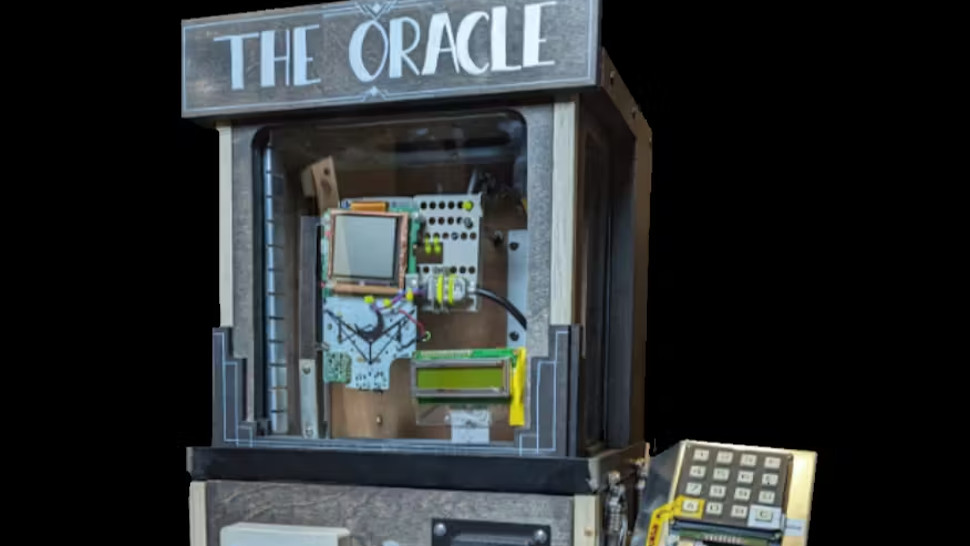Raspberry Pi hack turns Game Boy into a ChatGPT-powered fortune teller – and I’m terrified
A modern day Zoltar, with AI ramping up the spookiness levels of its predictions

You can do all manner of things with a Raspberry Pi, and the tiny computer boards (with various models) have been the engine behind fortune telling projects before – but the latest one is ambitious indeed.
As Tom’s Hardware reports, ‘The Oracle’ is a full arcade cabinet-sized fortune telling machine driven by a Raspberry Pi Zero W and also using old Game Boy components, plus ChatGPT into the bargain.
The end result, which took Evan Holbert three months to build (200 to 300 hours), is a fully realized fortune telling machine which is coin operated and prints out your fortune using a thermal printer.
After dropping in a coin, the user enters their date of birth on a keypad, and the program running on the Pi works out their zodiac sign, then runs a query with ChatGPT to get a horoscope for that sign in the style of HP Lovecraft / Dr Seuss.
The dusting of icing on the top is that before the fortune is printed, the custom Game Boy ROM appears to perform a ‘divination.’
Analysis: Big in the eighties
Anyone who has ever watched the movie ‘Big’ (with Tom Hanks) will doubtless remember the Zoltar fortune telling machine. It’s a real-world invention, in case you’re not aware, and a seriously spooky device in our books.
However, this different spin on the concept is even scarier with ChatGPT thrown into the mix – along with orders to concoct a ‘prediction’ along the lines of HP Lovecraft / Dr Seuss.
Sign up for breaking news, reviews, opinion, top tech deals, and more.
We tried a similar ‘tell our fortune’ in that style query with the ChatGPT-powered Bing AI (in Creative mode, naturally). It rambled on (we didn’t specify it to be a punchy reply), and mentioned, among other worrying bits and pieces, “the things that lurk in the shadows of your mind, where madness may irk, for there are ancient horrors that no one can name, that dwell in the dark and play a wicked game.”
Yikes, in a word.
If you’re a suitably skilled modding enthusiast, and have a hankering to build your own haunting fortune telling device, what’s pretty nifty is that the creator has made the project open source – so you can. For the less technically able among us – which is the vast majority, let’s face it – it’s still interesting to see all the nitty-gritty details of the project.
Raspberry Pi sales have seriously floundered since the pandemic, but the good news is that as 2023 has rolled onwards, interest in the tiny computer boards – which offer a number of variations – has returned to pre-pandemic levels.
Darren is a freelancer writing news and features for TechRadar (and occasionally T3) across a broad range of computing topics including CPUs, GPUs, various other hardware, VPNs, antivirus and more. He has written about tech for the best part of three decades, and writes books in his spare time (his debut novel - 'I Know What You Did Last Supper' - was published by Hachette UK in 2013).